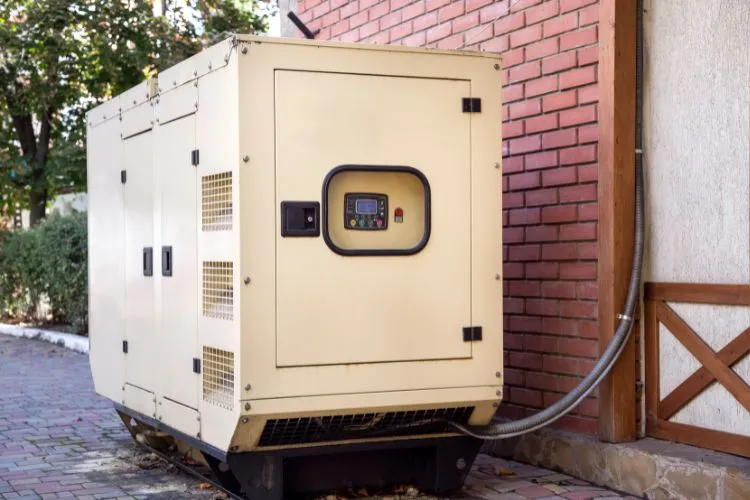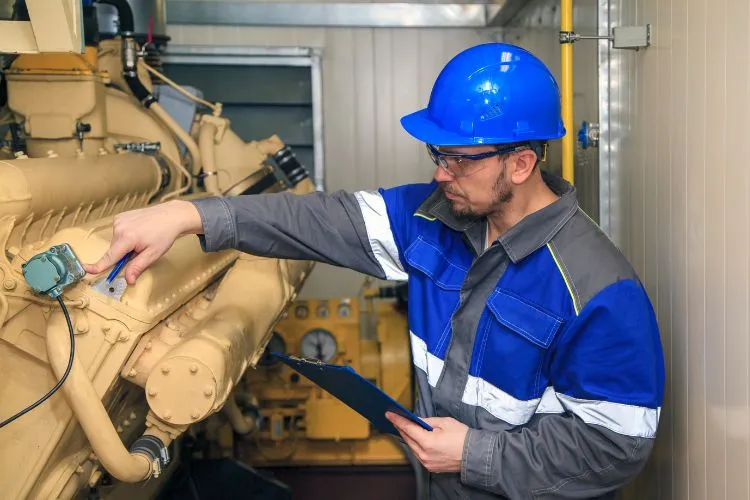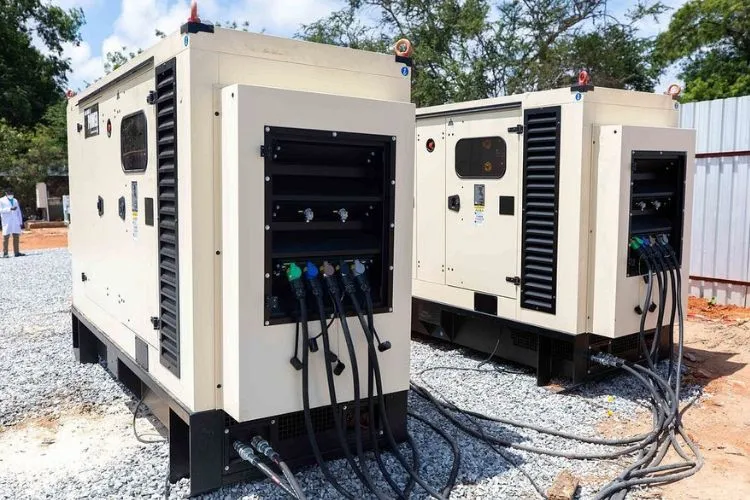In the world of business operations, the question of whether to rent or buy a commercial generator stands as a significant decision. This choice affects not only your financial standing but also the operational reliability of your business.
Given the vital role that a consistent power supply plays in most sectors, making an informed choice becomes paramount. This article serves as a comprehensive guide, Should You Rent Or Buy Your Commercial Generator? Let’s learn

Should You Rent Or Buy Your Commercial Generator?
Before diving into the financial implications or maintenance commitments, the first step is understanding your specific energy requirements. Energy demands vary greatly from one business to another.
They depend on factors such as the size of your operation and your industry type. For instance, a construction company might need a high-capacity generator intermittently, while a data center requires a consistent power supply.
The frequency and duration of power usage also play a crucial role. If your business only occasionally needs backup power, renting might seem more practical.
You should reflect on your past power usage patterns. This reflection can help you predict future needs. Knowing what you need helps in making a decision that aligns with your business requirements.
The Financial Implications
When contemplating the purchase of a commercial generator, the initial cost stands out as a major consideration. Buying a generator involves a significant upfront investment.
However, it’s essential to consider the total cost of ownership. This cost includes maintenance, repairs, and fuel consumption over the generator’s lifespan.
Renting a generator, on the other hand, requires evaluating short-term costs. Rental fees can add up, especially if you need the generator for an extended period.
Yet, renting eliminates many maintenance expenses as they typically fall under the rental company’s responsibility.
Financing options and tax implications for both buying and renting can influence your decision. Some businesses might benefit from tax deductions available for purchasing equipment.
Others may find the financial flexibility of renting more appealing. A cost comparison calculator can be a useful tool, helping visualize long-term savings and expenditures.
Maintenance and Upkeep
Owning a generator comes with the responsibility of regular maintenance to ensure its reliability and efficiency. This maintenance is crucial to prolonging the life of the generator and requires both time and money.

Rental agreements often include maintenance services, relieving you of this burden. This can be especially beneficial for businesses lacking in-house technical expertise. Proper maintenance ensures the generator’s performance is optimal when you need it the most.
You may also find useful: Are Diesel Generators Better Than Petrol Generators?
Flexibility and Scalability
Business needs evolve. The generator that serves your current needs might not suffice in the future. Buying a generator commits you to that piece of equipment. Yet, renting offers the flexibility to adjust to changing needs without additional capital investment.
This flexibility is crucial for businesses experiencing growth or changes in operational scale. Besides, renting provides an opportunity to test different generators. This way, you find the one that best suits your long-term needs before making a purchase.
Legalities and Compliance
Navigating the regulatory landscape is another critical aspect of the rent or buy decision. Local laws might dictate specific requirements for generator use and installation. Compliance issues can arise, varying from environmental standards to noise regulations.
When you rent, the rental company often ensures that the generator meets all legal requirements. This can offer peace of mind and save you from dealing with compliance issues directly.
However, when buying, you must ensure the generator complies with all relevant legislation, which can sometimes be a complex process.
The Environmental Perspective
The environmental impact of your choice is worth considering. Modern generators often come with features that reduce their carbon footprint, including improved fuel efficiency and reduced emissions.

Renting might give you access to the latest, most eco-friendly models without the long-term commitment. For businesses prioritizing green initiatives, renting can align with sustainability goals.
Making the Decision
The decision to rent or buy a commercial generator ultimately comes down to a detailed cost-benefit analysis. Consider both immediate needs and long-term business objectives. Scenario planning can help envision various outcomes, guiding you toward the most beneficial choice.
Consulting with an energy advisor can offer personalized insights, meshing your specific circumstances with industry best practices. This expert advice can be invaluable in making a well-informed decision.
Frequently Asked Questions (fAQs)
What factors influence the decision to rent or buy a commercial generator?
Decision-driving factors include energy requirements, financial implications, maintenance responsibilities, regulatory compliance, and environmental impact.
How do intermittent power needs affect generator procurement?
Intermittent needs might favor renting due to lower costs and flexibility, while constant needs might justify the purchase.
Can I rent a generator with the option to buy later?
Some rental companies offer rent-to-own schemes, allowing you to apply rental payments toward the purchase price.
How does generator size impact the rent vs. buy decision?
The size affects cost and efficiency. Larger generators cost more but might offer better long-term value for continuous use.
Are there any hidden costs when renting a commercial generator?
Hidden costs can include transportation and setup fees. It’s important to clarify these with the rental company upfront.
Conclusion:
Deciding whether to rent or buy a commercial generator is a multifaceted process. It requires careful consideration of your power needs, financial implications, maintenance commitments, and future business growth.
Legal and environmental factors also influence this decision. As you weigh the pros and cons, remember the importance of aligning your choice with your business’s operational needs and long-term goals.
The right decision can ensure not only a reliable power supply but also financial and operational efficiency for your business.
